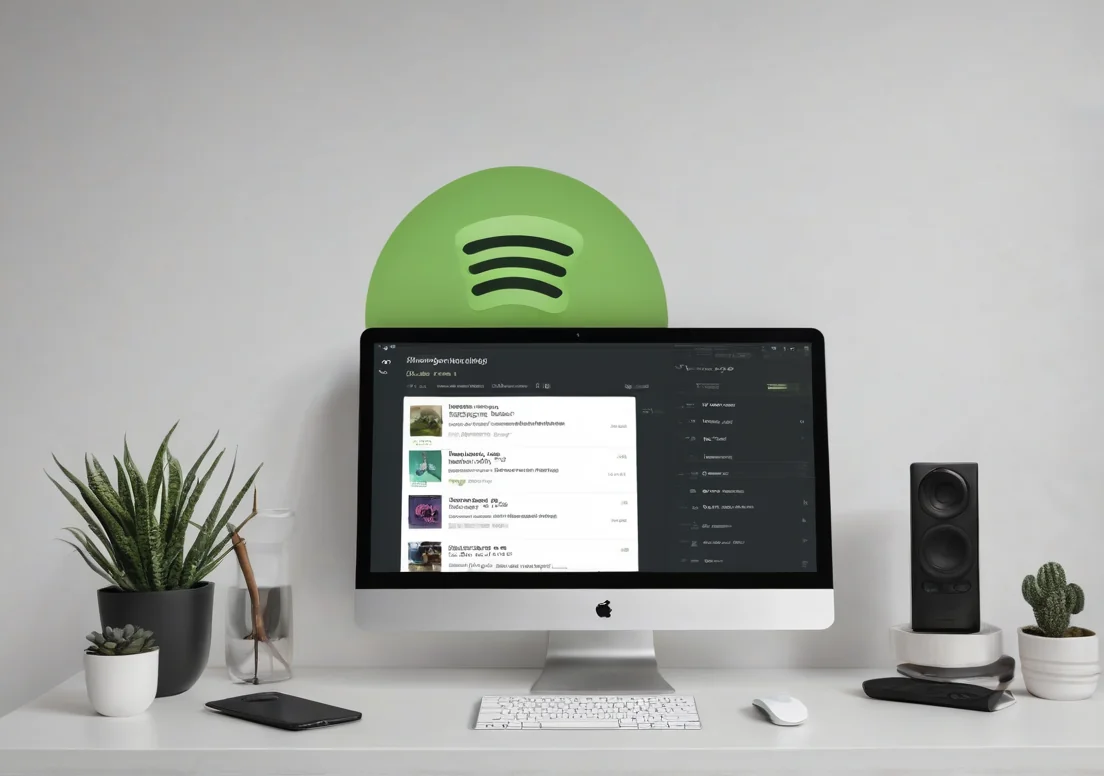Spotify is a global leader in music streaming, and its software engineering jobs come with high expectations. If you dream of developing innovative features that reach millions, you’ll need a solid skill set to back you up.
Essential skills for these roles include a strong foundation in programming languages, experience with cloud services, and a knack for problem-solving. But there’s much more to explore beyond these basics that can set you apart as a candidate in the competitive world of Spotify.
Key Takeaways:
- Master programming languages like Java, Python, and JavaScript, while engaging actively in their communities to showcase your skills.
- Gain hands-on experience with cloud computing, microservices, and DevOps principles to streamline processes and increase adaptability.
- Develop strong problem-solving abilities and collaborate efficiently across teams to innovate and deliver user-centered solutions.
#1 Proficiency in Programming Languages
Programming languages are the building blocks of any software engineering role, and at Spotify, specific languages stand out. Java, Python, and JavaScript are highly valued, each serving distinct functions within the platform.
Java is often used for backend services due to its scalability and robustness. Familiarizing yourself with its ecosystem, including frameworks like Spring Boot, can give you a solid edge. Python shines in data analysis and machine learning, crucial for personalizing user experiences and improving algorithm performance. Lastly, JavaScript powers much of Spotify’s client-side experience, particularly in web applications. Mastering React.js and Node.js can enhance your contributions to the front end.
If you want to impress, don’t just learn these languages; dive into their communities. Engage in open-source projects, contribute to libraries, or even develop your own applications. It’s all about showcasing your skill set and commitment to growth.
#2 Experience with Cloud Computing
Cloud computing is more than a trend; it’s integral to Spotify’s infrastructure. The platform relies on massive scalability, and technologies like AWS and Google Cloud offer flexible solutions for handling vast amounts of data and user requests.
Understanding cloud services isn’t limited to knowing how to deploy applications. Familiarize yourself with microservices architecture, which enables Spotify to run various services independently. Dive deep into topics like Containers (Docker) and Kubernetes for orchestration. Knowledge of serverless computing can also be a game-changer, allowing developers to build and deploy without managing servers directly.
It’s beneficial to earn relevant certifications from major cloud providers as they add credibility to your resume. Additionally, consider working on projects that utilize these cloud platforms. This hands-on experience can provide insights into performance optimization and cost management, both of which are crucial in a fast-paced environment like Spotify.
#3 Agile and DevOps Methodologies
Agile and DevOps aren’t just tech buzzwords at Spotify; they’re essential to the way teams operate and deliver software. Agile practices promote flexibility and collaboration, allowing engineers to adapt quickly to user feedback and changing requirements. At Spotify, you’ll likely engage in sprints where you’ll work in small, cross-functional teams focused on delivering features iteratively. This means you’re not just building products in isolation; you’re consistently incorporating insights and making improvements, ensuring the final output aligns with user needs.
DevOps complements this by fostering a culture that combines development and operations, aiming for faster product delivery and streamlined deployments. Engineers are encouraged to take ownership of the entire lifecycle, from coding and testing to deployment and maintenance. This holistic approach means you’ll gain experience with automation tools like Jenkins or Docker, which are pivotal in achieving continuous integration and continuous delivery (CI/CD).
Here’s a practical way to embrace these methodologies : Start applying Agile principles in your current projects. Use regular check-ins to reassess goals and outcomes with your team. If you’re diving into DevOps, explore basic CI/CD concepts, maybe build a mini project that tackles deployment automation. These foundations will not only prepare you for Spotify’s collaborative culture but also sharpen your skill set for any fast-paced tech environment.
#4 Strong Problem-Solving Abilities
Problem-solving is at the heart of what makes Spotify engineers stand out. You won’t just be writing code; you’ll be tackling unique challenges daily. This means you need a mindset that isn’t just reactive but proactive—one that detects issues before they blossom into bigger headaches.
To hone your problem-solving skills, practice breaking down complex issues into manageable parts. Instead of seeing a bug in a feature as a mountain, view it as a series of hills. Ask yourself, “What’s the root cause?” or “How can I test this hypothesis efficiently?” Being methodical in your approach not only helps in identifying and resolving issues faster but also strengthens your analytical prowess.
Additionally, engage in collaborative brainstorming. Sharing your thought process with peers can reveal different perspectives that lead to innovative solutions. Consider participating in hackathons or coding challenges that mimic real-world scenarios, as they push you to think on your feet.
Technical aptitude is crucial, but your ability to approach problems with a clear, analytical mindset will set you up for success at Spotify and beyond.
#5 Knowledge of Data Structures and Algorithms
A deep understanding of data structures and algorithms isn’t just a nice-to-have—it’s essential. In a fast-paced environment like Spotify, coding efficiency can make all the difference. Think about it: choosing the right data structure can mean the difference between a snappy application and one that lags behind.
Here’s how these concepts tie into real-world work at Spotify:
Problem-Solving : Being well-versed in algorithms equips you with strategies to tackle complex problems quickly. For instance, using a sorting algorithm can drastically reduce the time it takes to organize playlists.
Performance Optimization : Knowing the most efficient way to store and retrieve data helps in developing applications that respond quickly. This means a smooth user experience, which is critical when users expect instant access to their favorite tracks.
Technical Interviews : Spotify often emphasizes coding challenges during the interview process. Having solid algorithm skills can help you navigate these challenges, showcasing your analytical thinking and coding prowess.
Focusing on common algorithms (like binary search or dynamic programming) and data structures (like hash tables and trees) can really give you a leg up. Practicing through platforms like LeetCode or HackerRank can help solidify these skills.
#6 Familiarity with Music and Audio Processing
Understanding music and audio processing can truly set you apart when applying to Spotify. This isn’t just about knowing how audio files work—it’s about grasping the intricacies of sound, which can inform your engineering decisions.
Here’s how this expertise can be beneficial:
Signal Processing Skills : Having a foundation in signal processing means you’re equipped to handle challenges like enhancing audio quality or analyzing user preferences based on listening habits.
Innovative Features : A background in audio technology can inspire you to develop features that resonate with users. Think about personalized playlists or dynamic sound adjustments that adapt to user environments.
Understanding User Experience : Knowledge in this area can help you create apps that deliver a seamless audio experience. For instance, if you know how to compress and optimize audio files, you can ensure fast downloads and streaming, leading to higher user satisfaction.
To enhance your skills, dive into online courses or work on personal projects that involve audio processing. Building a simple music analysis tool or a basic synthesizer can give you practical experience and show your passion for both software engineering and music technology.
#7 Collaboration and Communication Skills
In a fast-paced environment like Spotify, teamwork isn’t just encouraged; it’s essential. Engineers often collaborate across disciplines, meaning your ability to communicate effectively with diverse teams can make or break a project. Think about it: when developers, designers, and product managers all pull in the same direction, the results are remarkable.
To thrive in this setting, wear the hat of both a listener and a contributor. It’s not just about sharing your ideas, but also about actively engaging with others. Try adopting the tools and practices Spotify employs—like using agile methodologies to facilitate daily stand-ups and retrospectives—bringing everyone into the loop and keeping lines of communication open.
Since many engineering teams are remote or hybrid, it’s vital to master virtual communication tools. Become adept at using platforms like Slack or Zoom for clear and concise messaging. And remember, non-verbal cues matter too, even in digital mediums. Be mindful of your tone and the language you choose, keeping it positive and constructive to foster collaboration.
#8 Continuous Learning and Adaptability
Tech doesn’t stand still, and neither should you. In a dynamic landscape where industry trends shift rapidly, a mindset geared toward continuous learning is invaluable. Spotify thrives on innovation, and that means its software engineers must stay on their toes.
Embrace a culture of curiosity and seek out opportunities to broaden your skill set. This could mean dedicating time each week to explore new programming languages, frameworks, or tools that are gaining traction in the industry. Consider subscribing to tech blogs or attending webinars that focus on the latest developments in software engineering.
Take it further by participating in open-source projects or contributing to community forums. Not only does this enhance your skills, but it also helps build your professional network. Another practical way to stay adaptable is to attend hackathons or coding challenges. These settings test your ability to learn quickly and think outside the box, vital skills for a role at Spotify.
Lastly, don’t underestimate the importance of feedback. Regularly seeking input on your work from peers can highlight areas for growth, ensuring you’re always adapting to emergent technologies and methodologies.
Exciting Trivia About Spotify’s Tech
Spotify is a tech powerhouse, continuously reshaping how we experience music. The platform uses microservices architecture, enabling teams to work independently on different features, resulting in faster updates and less downtime. This structure allows Spotify to scale efficiently, adapting to millions of users without breaking a sweat.
Another intriguing aspect is Spotify’s commitment to data analysis. With advanced algorithms, they personalize playlists like Discover Weekly and Release Radar. These features are driven by sophisticated data models that analyze users’ listening habits, making recommendations that feel almost tailor-made. Spotify employs tools like Apache Kafka for real-time data ingestion, which plays a crucial role in delivering updates smoothly and swiftly.
On the innovation front, Spotify embraces the programming language Go for its ability to handle concurrent systems effortlessly. Go’s simplicity and speed enhance performance, especially for backend services that require quick management of numerous tasks. This means engineers need to be well-versed in not just Go, but also understand cloud-based solutions given Spotify’s use of Amazon Web Services (AWS) to support its vast infrastructure.
Moreover, Spotify’s use of machine learning isn’t just a buzzword—it’s integral to its music recommendation systems. Engineers working here should have a solid grasp of ML concepts and be comfortable with frameworks like TensorFlow or PyTorch. This expertise helps in making data-driven decisions that refine user experiences further.
Security’s another priority—protecting user data is paramount. Software engineers at Spotify must understand best practices in security programming and be familiar with protocols and frameworks that protect sensitive information. Having experience with encryption methods and authentication strategies is a big plus.
Thinking about user experience? Spotify emphasizes the importance of UI/UX design. Technically skilled engineers should also think creatively, bridging the gap between functionality and a seamless user interface. Knowledge of design thinking can be incredibly beneficial in this multi-disciplinary environment.
Here’s a quick look at some helpful snippets:
What programming languages are preferred at Spotify?
Predominant languages include Java, Python, and Go.How does Spotify handle scalability?
Spotify relies on microservices and cloud infrastructure, primarily AWS.Is machine learning essential for Spotify engineers?
Yes, familiarity with machine learning is beneficial, especially for roles focused on data analysis or personalization.What tools do Spotify engineers commonly use?
Tools vary, but expect to see a lot of Git, Jira, and Docker in the mix.What’s unique about Spotify’s tech culture?
It promotes a collaborative environment, encouraging innovation and experimentation.




